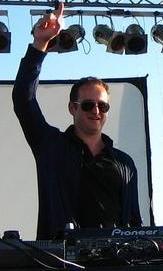IFF Mark II
 IFF Mark II.
IFF Mark II.IFF Mark II was the first operational identification friend or foe system, developed by the Royal Air Force just before World War II. The Mark I, its predecessor, amplified the signals of the British Chain Home radar systems, triggering a radar display blip. It required manual tuning, and operators could not always distinguish between an enemy aircraft and a friendly one with a maladjusted IFF. The Mark II, deployed at the end of the Battle of Britain in late 1940, fixed this problem with an automatic gain control and three automatic tuners that covered a wider selection of radars. The Mark II's frequencies were sufficient for the early war period, but by 1942 many more radars were in use, including incompatible ones based on the cavity magnetron. The IFF Mark III eliminated the multiple tuners and operated on a single frequency that could be used with any radar; it entered service in 1943 and quickly replaced the Mark II.



























